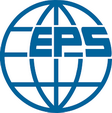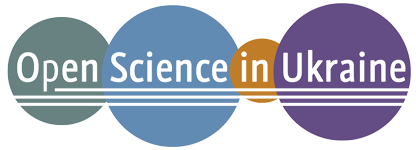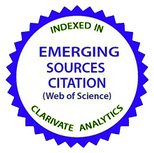Impedance spectroscopy of capacitor systems based on saccharide-derived porous carbon materials.
DOI:
https://doi.org/10.15330/pcss.22.4.711-716Keywords:
porous carbon material, impedance spectroscopy, supercapacitor, specific surface area, equivalent electric circuitAbstract
The electrochemical processes in capacitor systems based on porous carbon materials (PCMs) derived from glucose, lactose, and saccharose at activation temperature of 800 and 1000°C are explored using impedance spectroscopy method. An equivalent electric circuit, which allows modeling of the impedance spectra in the frequency range from 10-2 to 105 Hz, is proposed, and a physical interpretation of each element of the electrical circuit is presented. It is set that in capacitor systems on the basis of the explored materials the accumulation of capacitance occurs due to the formation of a double electric layer at the electrode/electrolyte boundary, and Faradaic processes are minimized. The specific capacity of supercapacitors based on PCMs obtained at 800°C is 91-154 F/g due to the developed microporous structure of materials.
References
B.E. Conway, Electrochemical supercapacitors: scientific fundamentals and technological applications. (Kluwer-Plenum, New York, 1999).
R. Kotz, M. Carlen, Electrochim. Acta 45(15-16), 2483 (2000) https://doi.org/10.1016/S0013-4686(00)00354-6.
A. Burke, J. Power Sources 91(1), 37 (2000) https://doi.org/10.1016/S0378-7753(00)00485-7.
J.R. Miller, A.F. Burke, Electrochem. Soc. Interface 17(1), 53 (2008) https://doi.org/10.1149/2.f08081if.
B.K. Ostafiychuk, I.M. Budzulyak, B.I. Rachiy, R.P. Lisovsky, V.I. Mandzyuk, P.I. Kolkovsky, R.I. Merena, M.V. Berkeshchuk, L.V. Golovko, J. Nano- Electron. Phys. 9(5), 05001-1 (2017) doi: 10.21272/jnep.9(5).05001.
J.Y. Hwang, M. Li, M.F. El-Kady, R.B. Kaner, Adv. Funct. Mater. 27, 1605745 (2017) https://doi.org/10.1002/adfm.201605745.
K. Dujearic-Stephane, M. Gupta, A. Kumar, V. Sharma, S. Pandit, P. Bocchetta, Y. Kumar, J. Compos. Sci. 5, 66 (2021) (https://doi.org/10.3390/jcs5030066).
H. Pan, J. Li, Y.P. Feng, Nanoscale Res. Lett. 5, 654 (2010) (https://doi.org/10.1007/s11671-009-9508-2).
C. Zheng, W. Qian, C. Cui, G. Xu, M. Zhao, G. Tian, F. Wei, J. Nat. Gas Chem. 21(3), 233 (2012) https://doi.org/10.1016/S1003-9953(11)60358-7.
A. Halama, B. Szubzda, G. Pasciak, Electrochim. Acta 55, 7501 (2010) http://dx.doi.org/10.1016/j.electacta.2010.03.040.
J. Xu, X. Zhou, M. Chen, S. Shi, Y. Cao, Micropor. Mesopor. Mat. 265, 258 (2018) https://doi.org/10.1016/j.micromeso.2018.02.024.
B.J. Lee, S.R. Sivakkumar, J.M. Ko, J.H. Kim, S.M. Jo, D.Y. Kim, J. Power Sources 168(2), 546 (2007) https://doi.org/10.1016/j.jpowsour.2007.02.076.
W. Wei, X. Cui, W. Chen, D.G Ivey, Chem. Soc. Rev. 40(3), 1697 (2011) https://doi.org/10.1039/C0CS00127A.
Y. Xu, J. Wang, W. Sun, S. Wang, J. Power Sources 159(1), 370 (2006) https://doi.org/10.1016/j.jpowsour.2006.04.011.
V. Gupta, N. Miura, Mater. Lett. 60(12). 1466 (2006) https://doi.org/10.1016/j.matlet.2005.11.047.
H. Inoue, T. Morimoto, S. Nohara, Electrochem. Solid-State Lett. 10(12), A261 (2007) https://doi.org/10.1149/1.2781524.
P.F. Ortega, Garbas A. dos Santos Junior, L.A. Montoro, G. Silva, C. Blanco, R. Santamaría, R.L. Lavall, J. Phys. Chem. C, 122(3), 1456 (2018) https://doi.org/10.1021/acs.jpcc.7b09869.
V.V. Strelko, V.S. Kuts, P.A. Thrower, Carbon 38(10), 1499 (2000) https://doi.org/10.1016/S0008-6223(00)00121-4.
M. Seredych, D. Hulicova-Jurcakova, G.Q. Lu, T.J. Bandosz, Carbon 46(11), 1475 (2008) https://doi.org/10.1016/j.carbon.2008.06.027.
B.K. Ostafiychuk, I.M. Budzulyak, M.M. Kuzyshyn, B.I. Rachiy, R.A. Zatorskiy, R.P. Lisovskiy, V.I. Mandzyuk, J. Nano- Electron. Phys. 5(3), 03049-1 (2013).
G. Hasegawa, T. Deguchi, K. Kanamori, Y. Kobayashi, H. Kageyama, T. Abe, K. Nakanishi, Chem. Mater. 27(13), 4703 (2015) https://doi.org/10.1021/acs.chemmater.5b01349.
V.I. Mandzyuk, I.F. Myronyuk, V.M. Sachko, B.I. Rachiy, Yu.O. Kulyk, I.M. Mykytyn, J. Nano- Electron. Phys. 10(2), 032018-1 (2018) https://doi.org/10.21272/jnep.10(2).02018.
S.J. Gregg, K.S.W. Sing, Adsorption, surface area and porosity (Academic Press, London, 1982).
E. Barsoukov, J.R. Macdonald, Impedance spectroscopy: theory, experiment, and applications (John Wiley & Sons Inc., New Jersey, 2018).
І.F. Myronyuk, V.I. Mandzyuk, V.M. Sachko, V.M. Gun’ko, Nanoscale Res. Lett. 11(508), 1 (2016) https://doi.org/10.1186/s11671-016-1723-z.









